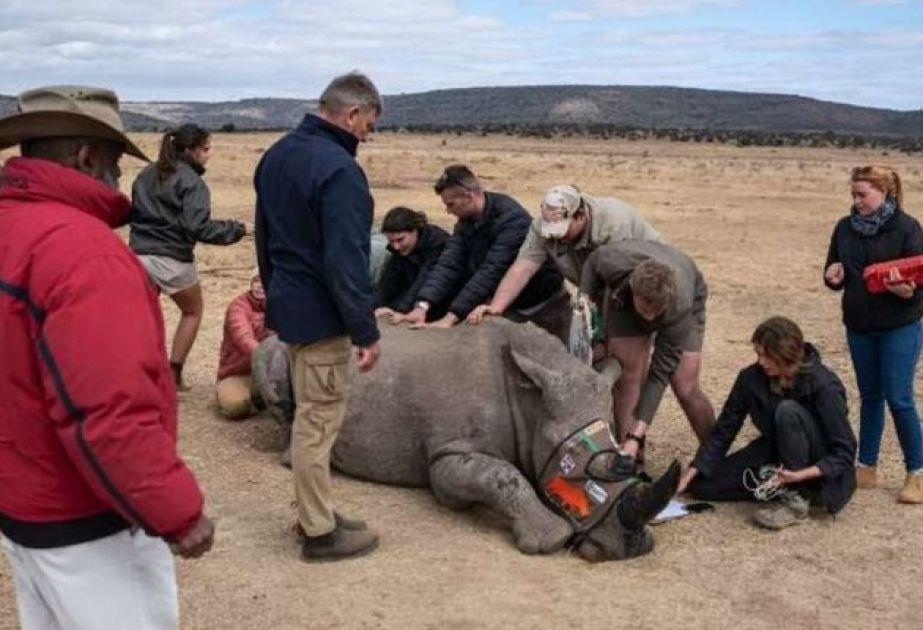
Radioactive Rhino Horns Stop Poaching
In South Africa, home to most of the world's rhino populations, scientists have taken an innovative step in the fight against poaching. They injected radioactive material into the horns of live rhinos to make it easier to detect them at border posts, Azernews reports.
This advanced project, designed to reduce illegal rhino trapping, is aimed at reducing demand for horns in Asia, where they are used in traditional medicine.
James Larkin, director of the Department of Radiation and Medical Physics at the University of the Witwatersrand, who led the initiative, told the media that he injected "two tiny radioactive chips into the horn" of one of the rhinos. According to Larkin, the radioactive material "will render the horn useless and practically poisonous for human consumption."
Professor Nitaya Chetti, dean of the Faculty of Sciences at the same university, added that the dose of radioactive material is so small that it will have no effect on animal health or the environment.
Despite the government's efforts to combat the illegal trade, in February, South Africa's Ministry of Environment reported that 499 rhinos were killed in 2023, an 11 percent increase over 2022.
As part of the Rhisotope pilot project, twenty live rhinos will receive a dose of radioactive material sufficient to trigger detectors at international border posts established to prevent nuclear terrorism.
Legal Disclaimer:
MENAFN provides the
information “as is” without warranty of any kind. We do not accept
any responsibility or liability for the accuracy, content, images,
videos, licenses, completeness, legality, or reliability of the information
contained in this article. If you have any complaints or copyright
issues related to this article, kindly contact the provider above.

















Comments
No comment